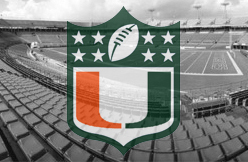Make no mistake about it — it is matter of when, not if, the Eagles will draft a wide receiver later this month in the NFL Draft.
That outcome became etched in stone when Jeremy Maclin signed with the Kansas City Chiefs, leaving the Eagles without their top wide receiver from last season.
The good news is that like last year's draft, the Eagles will have plenty of talented receivers to choose from, as the draft class is considered especially deep at the position once again.
Leaving the Eagles to decide not only what receiver they want to draft, and when, but what kind, and which receiver best compliments Jordan Matthews and Josh Huff.
Matthews and Huff, both entering their second season, were early draft picks by the Eagles last year. Matthews, despite head coach Chip Kelly wanting to take him earlier, went in the second round. Huff was taken one round later in the third.
The high-draft picks the Eagles invested in them means both will be playing a prominent role in the offense next season, and any receiver drafted will be brought in to compliment, not replace them.
One thing is clear — the Eagles, even after losing Maclin, plan to keep Matthews as their slot receiver. One reason is that Matthews didn't learn all of the outside receiver position's routes last season, and only knows the slot position. Another? He was arguably the best slot receiver in the NFL last season.
Matthews, who finished with 67 catches for 872 yards and eight touchdowns, trailed only Green Bay's Randall Cobb in catches, yards and touchdowns from the slot position.
His production, combined with the mismatch Matthews gets every week over a smaller nickle cornerback, means Matthews will spend next season right where he did last season — on the inside.
Like Matthews, Huff will also be playing the same role he did last season, he will just be playing more of it.
Huff saw limited action last season, the result of a shoulder injury he suffered in the preseason. The third-round pick ran only 106 routes, catching only eight catches for 98 yards. Of those 106 routes Huff ran, only six of them came from the slot.
Using Huff predominantly on the outside makes sense. He does not have the size Matthews does, and is better in space, as opposed to over the middle. He is perhaps the team's best receiver after the catch, as he forced six missed tackles in 210 snaps. By comparison, Riley Cooper forced only three missed tackles in 980 snaps.
With Huff manning one outside receiver position, and Matthews cemented on the inside, the Eagles will more than likely be drafting a receiver that specializes on the outside, as opposed to one built like Matthews, who excels in the slot.
Using that criteria, two receivers that make sense for the Eagles are Ohio State's Devin Smith and Miami's Phillip Dorsett.
While Huff and Matthews bring plenty to the table, neither bring the kind of straight-line, down-the-field speed the Eagles missed last season. That is where both Smith and Dorsett could add another dimension to the Eagles' offense.
Smith caught 33 passes for 931 yards and 12 touchdowns last season, averaging a whopping 28.2 yards per catch. His big-play ability was backed up at the NFL Combine, when he ran his 40-yard dash in 4.42 seconds.
Dorsett is another big-time playmaker that might compliment Matthews and Huff, as he ran his 40-yard dash in 4.33 seconds, and had at least one catch of 35-yards or more in seven games last season.
Both Smith and Dorsett are expected to be available when the Eagles go on the clock with the 52nd overall pick.

(nj.com)



